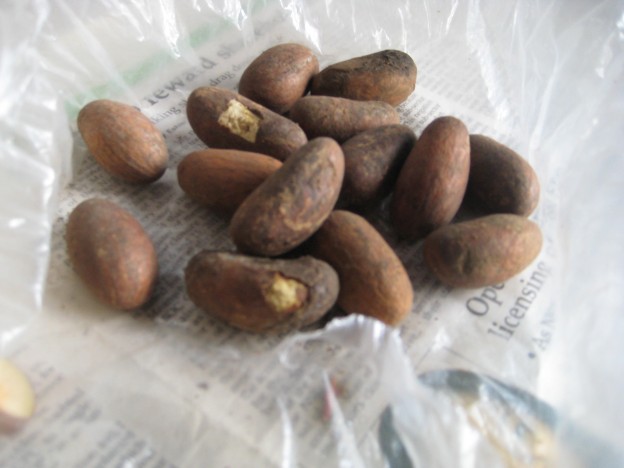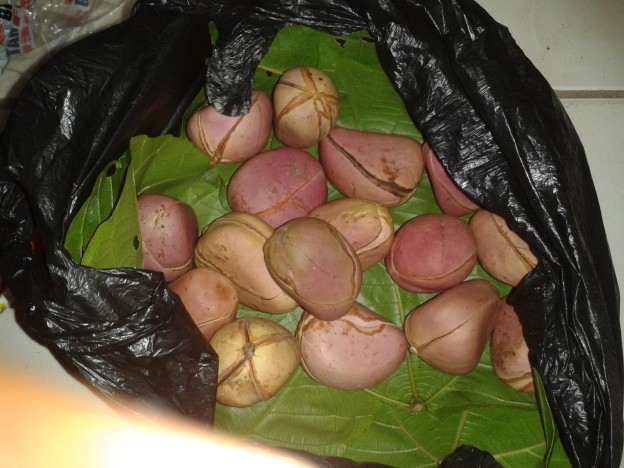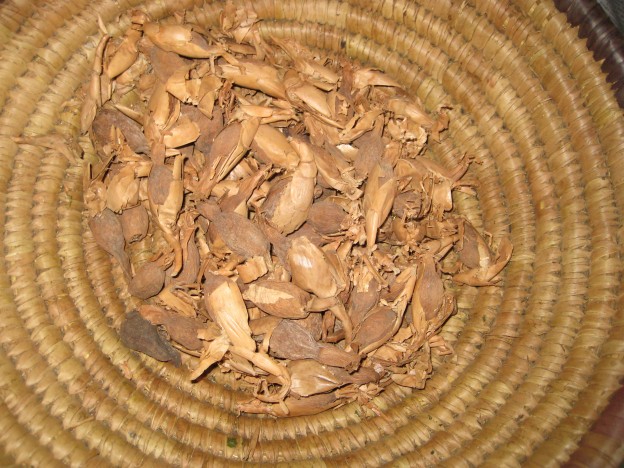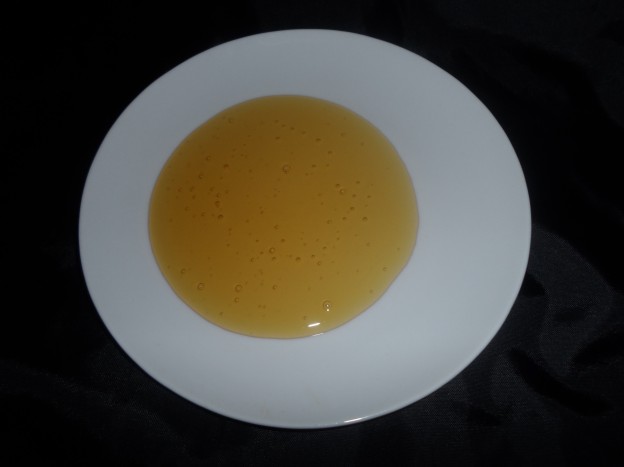Lati ọjọ́ ti aláyé ti dá ayé ni Yorùbá ti ni ìgbàgbọ́ ninu ki a gba àdúrà nitori pe ohun gbogbo fẹ́ àdúrà “Ohun ti o dára fẹ́ àdúrà ki ó bà lé dára si, eyi ti kò dára na fẹ́ àdúrà ki ó bà lé yanjú”. Bi àwọn “Ìgbàgbọ́ tàbi ilé-àdúrà aláṣọ funfun” ti ńlo “Àbẹ́là” gba àdúrà a ni Yorùbá ma ńlo àwọn ohun ọ̀gbin bi: Orógbó, Obì, Atare àti Oyin nibi ètò ìgbéyàwó, ìsọmọ lórúkọ, ìṣílé, àjọ̀dún àti bẹ̃bẹ lọ. Ẹ jẹ ki a ṣe akiyesi bi Yorùbá ti ńlo wọn fún àdúrà:
Orógbó: Bitter-kola
Ọpọlọpọ ìgbà ni a ki mọ ẹni ti o gbin igi orógbó nitori igi rẹ lè pé igba ọdún, nitori eyi, Yorùbá ma ńlo lati gbàdúrà nibi ṣiṣe fún ẹmi gigun pe “wa gbó wa tọ́”.
Obì: Kola-nut
Obì wulo fún ọrọ ajé. Yorùbá ni “ọdọdún la nri orógbó, ọdọdún la nri obì lori atẹ” nitori eyi wọn a lo fún àdúrà pe “obì a bi iku, àti pé ẹni na a ṣe àmọ́dún”.
Atare: Guinea/Maleguetta/Alligator pepper
Ọmọ/èso pọ ninu atare, nitori eyi wọn a fi gba àdúrà, pataki fún ẹni ti o nṣe ìgbéyàwó pe “ilé wọn á kún fún ọmọ” tàbi nibi ìsọmọ lórúkọ pe “bi wọn ṣe bi ọmọ na, ilé tirẹ̀ na á kún fún ọmọ”.
Oyin: Honey
Òwe Yorùbá ni “Dídùn là ḿbá láfárá oyin”, nitori eyi wọn a lo oyin lati gba àdúrà nibi ìgbéyàwó, ìsọmọ lórúkọ àti ṣiṣe yoku pe ayé ẹni ti o nṣe nkan á dùn bi oyin.
ENGLISH TRANSLATION
Since creation, Yoruba people had always believed in praying because all things require prayer “What is good require prayer for sustenance, what is bad requires prayer for solution”. As the “Christians or the white garment Churches” use “Candles” for praying, so do Yoruba people use agricultural produce such as: Bitter-kola, Kola-nut, Alligator pepper and Honey to pray during traditional marriage, naming ceremony, house warming, anniversaries etc. Let us note some ways Yoruba people use these items for prayer:
Most often the planter of bitter-kola tree is unknown because the tree can live for two hundred years, hence Yoruba used this to pray during ceremony for long live “the celebrant will long and old”.
Kola-nut is useful as cash crop. Yoruba adage said “Bitter-kola is found yearly, kola-nut is found annually on market display”, as a result of this adage it is believed and reflected in the prayer that said “kola-nut will push away death and the person will live to see another year”.
Alligator pepper often carry many seeds, hence it used during prayer, particularly during traditional marriage that “the couple’s home will be full of children” or during naming ceremony that “as the baby was born so also his/her house will be full children”.
Yoruba Proverb as translated by Oyekan Owomoyela “One finds only sweetness in a honey comb”. This can be applied to the prayer that “The celebrant’s affairs will always be characterized by pleasantness”.
Originally posted 2013-12-13 21:05:33. Republished by Blog Post Promoter







Today at 9:30 PM
I may take this opportunity to examine what, the wicked think when good things happens to good people? ay be nothing serious , since they have their heart plague with darkness. There is still room for transformation, if only the wicked can see the good things at work for the good people. Mandela lived a life worth emulating, lived in one house, served only one term in the Office, have no foreign bank account. I could go on and on about the transparency of Mandela. I wish I could have more African leaders to talk and write about on the subject of Transparency. Please repent or else you shall ………………….says the good book.
The passing away of our dear beloved father of Africa, ‘Baba Mandela’ has created a vacuum .What a shining example for all, especially to the rest African leaders that refuse to quit? Even when they have outlived their usefulness. I hope they can imagine their obituary from now on. Adios Papa.